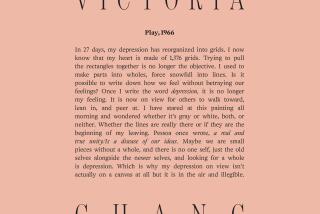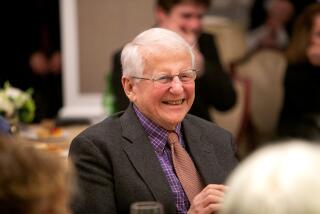NONFICTION - Oct. 20, 1996
HOMAGE TO ROBERT FROST by Joseph Brodsky, Seamus Heaney, Derek Walcott (Farrar Straus & Giroux: $18, 117 pp.). I opened the book. I thought, this is going to be like a graduate seminar on Robert Frost’s poetry: distant, competitive, ego-laden, a clash of the Titans. I am going to be made uncomfortable and guilty for hating it. I closed the book delighted and grateful and amazed by how wide the net cast by literature is, how deeply lasting and transforming poetry can be, how many interpretations there can be of a thing that is well-made and honest and what a pure, telescopic activity writing poetry is. I was reminded of what tenderness and curiosity and interest in human nature it takes to be a professor of literature and an interpreter of literature (a generosity that mirrors and is inspired by the author under scrutiny) and of how transparent even the most distinguished, adept critics are on the page.
What would Frost say? The poet we remember as irascible, deceptively plain-speaking, a little cruel, and above all, cold? A Russian poet, an Irish poet and a poet from the West Indies, three Nobel Prize winners, comment here from their lofty vantage points on his writing.
It doesn’t matter what he’d say. The poems themselves kick and scream under the weight of it. Valiantly, they try to protect and hide their author from these agile predators. But Brodsky in particular tears Frost’s great poems “Come In” and “Home Burial” limb from limb, iamb from iamb, leaving the naked poet shivering in the New England landscape, an American, a man torn between grief and reason.
Heaney is only slightly more polite, taking on Frost’s philosophy: “Frost believed . . . that individual venture and vision arose as a creative defense against emptiness.” He stays close to the language and music and sense of Frost’s poetry but does not expose the poet, in all his hypocrisy and terror, as brutally as Brodsky.
And Walcott has a different agenda altogether. He feels excluded (a description that may unfairly personalize it, but might also be the seed of a more general, common, translatable perspective on Frost’s poetry), like so many readers, from the suffocating posture of the New England tradition, its exclusiveness, its walls that we do not love. “For all his winking and his intimacy,” Walcott writes, “Frost is a very private poet.” But while Frost’s privacy may have put off Heaney and Walcott, it sure didn’t stop Brodsky from barging in.
One might say that Brodsky breaks down the door, Heaney knocks and Walcott listens from the other side.
In reading Frost’s letters in the Library of America edition, Walcott comes across a passage written by Frost in 1934: “I read that negroes were chosen to sing her opera [Gertrude Stein’s] because they have less need than white men to know what they are talking about.” The dignity and reluctance with which Walcott describes the delicate dance he must do with Frost’s poetry after reading this passage explains everything and makes one wonder if he hasn’t, in his tenderness and vulnerability, understood Frost the best.
Heaney quotes Frost speaking of his technique: “The best place to get the abstract sound of sense is from voices behind a door that cuts off the words . . . it is the abstract vitality of our speech.” Walcott certainly hears Frost from behind a closed door, and like so many relationships with New Englanders, anger can be the most distracting but also the swiftest path into the soul. Walcott writes: “It was not that poetry was all that mattered, was all that he had, that made him seem cruel, but that he could close it tight in its frame like a door against foul weather, or light it, like an old lamp, against even worse weather, the black gusts that shook his soul.”
More to Read
Sign up for our Book Club newsletter
Get the latest news, events and more from the Los Angeles Times Book Club, and help us get L.A. reading and talking.
You may occasionally receive promotional content from the Los Angeles Times.






